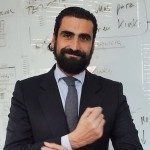
Two common threads run through the many recent analyses about what 2015 has in store for us. All the projections recognise the complexity of the situation as a result of the changes that will occur. For example, in geostrategy, oil predominates, in politics, the end of the two-party system, and in economics, the impact of disruptive technology. That is, complexity and change, but there is a generation that is more prepared than any other to address them. They are the Millennial Generation, i.e. people born between the late 1970s and the 1980s, who have grown up with the crisis and, precisely for that reason, know how to contend with it. The most world’s reputable institutes and companies have studied Millennials, concluding that there are three attributes we must learn from them:
- Science, which sheds light and provides answers to the unanswered questions of the moment. Along these lines, sound training will be required in the technical fields known collectively as STEM (Science, Technology, Engineering and Maths). An increasing number of countries use the ratio of STEM degrees to total graduates to identify their degree of adaptation to the new economy. Israel and Korea are ahead of Europe in this regard.
- Startup Revolution: Create companies to provide jobs and contribute wealth to the society in which you live. Millennials don’t start businesses because they need to but as a way to be true to themselves. The entrepreneurial revolution is about more than economics, and it’s coherent with a new world that’s being created where change will be bottom-up, generated by what Moisés Naim calls micro-powers, in contrast to what we’re used to or even what we expect, namely that some great institution will offer us a magic solution.
- Sharing Economy between entrepreneurs to resolve the problems around us. It’s not charity and it’s not just business; it’s about innovating to save the world through the collaborative economy and social entrepreneurship. It’s a disruption in business models which transcends a volume-based (B2C) approach, or one that focuses on a few good clients (B2B), to pursue cooperation between equals (P2P), as extolled by Jeremy Rifkin in his book Zero Marginal Cost Society.
These are the trends focused on by Millennials, such as Joaquín Muñoz who, from his tiny office in Madrid, recently won a case against Google in a suit over the right to be forgotten; José Luis Fernández, a young engineer who won a Microsoft award with his start-up focused on photo challenges; Sergio López, who runs a holding company grouping 20 technology companies where he is the youngest employee; Ángela Borreguero, who left everything behind to move to a remote Cantabrian valley and launch a home-care company; and Pedro Rincón, whose social project with discount coupons, based in Seville, where he lives, is improving the lives of the unemployed all over Spain.
Ferrovial Services has a new open innovation programme, MADRID SMART LAB which aligns with this global trend. This project aims to scale the capacity of Millennial entrepreneurs in innovating in municipal services, working together with government agency Madrid Emprende to turn Spain’s capital city into an enormous incubator for testing entrepreneurs’ innovations.
They are the Millennials, the new generation of the Millennium who are creating their own jobs and will pull us out of the crisis.
____________
In this book they have collaborated Manuel Martínez, Head of Innovación in Ferrovial, and Rafael Fernández, Head of Proyectos España del Centro de Competencia de Ciudades de Ferrovial Servicios, with a chapter regarding the Madrid Smart Lab and how Ferrovial searches for this «millennials» and their potential in order to generate value.





There are no comments yet